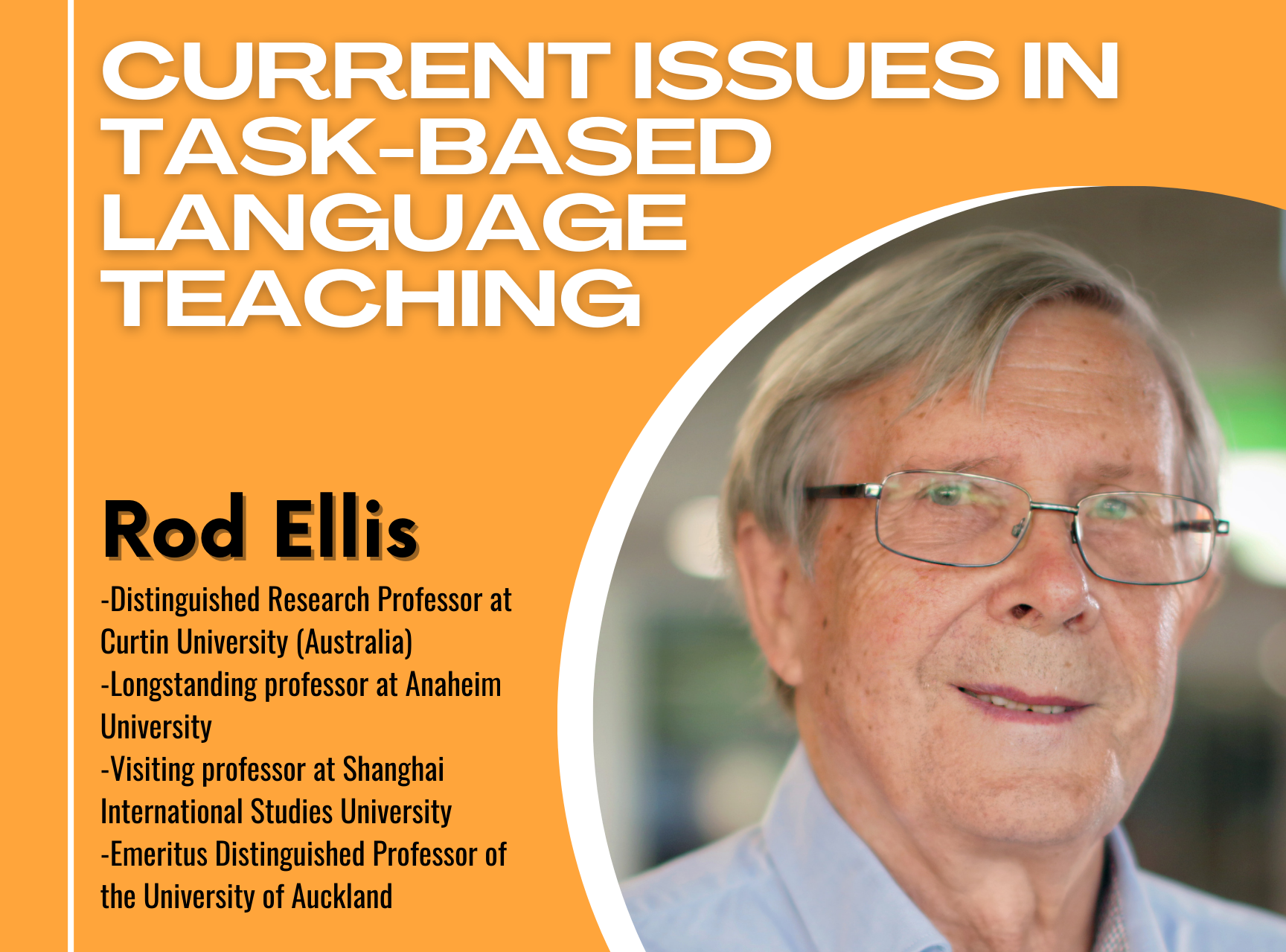SLA Invited Lecture: Rod Ellis

SLA Invited Lecture: Rod Ellis
Rod Ellis is a distinguished Research Professor in Curtin University (Australia), a longstanding professor at Anaheim University, a visiting professor at Shanghai International Studies University, and an Emeritus Distinguished Professor of the University of Auckland. He is also a fellow of the Royal Society of New Zealand. He has written extensively on second language acquisition and task-based language teaching. His most recent (co-authored) book is Task-based Language Teaching: Theory and Practice (2020) published by Cambridge University Press.
Abstract
The advocacy of task-based language teaching (TBLT) has the characteristics of a movement as it seeks to replace the view that teaching a language entails treating a language as a set of objects that can be learned systematically bit by bit with the view that language is a tool for communicating and can best be acquired through learning how to communicate. Inevitably, this movement has aroused resistance and the reassertion of the merits of more traditional, object-oriented teaching (Bruton, 2002; Sheen, 1994; Swan, 2005). My starting point is these critiques and the responses of advocates of TBLT (Ellis, 2009; Long, 2016) to what they see as fundamental misunderstandings about the principles that inform TBLT and its actual implementation. From there, however, I want to move on to examine a number of real problems that TBLT faces - such as how a ‘task’ should be defined, how to determine task complexity and sequence tasks, and the role of explicit instruction. I will conclude by arguing that – as is often the case when positions are presented as absolute and incompatible – that there is need for a compromise and this might be achieved by means of a hybrid/ modular syllabus that allows for both an object-oriented and a tool-oriented view of language learning and teaching.
Readings:
1. Ellis, R. (2009). Task-based language teaching: Sorting out the misunderstandings. International Journal of Applied Linguistics 19, 221–246.
2. Long, M. H. (2016). In defence of tasks and TBLT: Nonissues and real issues. Annual Review of Applied Linguistics, 36, 5–33.
3. Ellis, R. (2017). Moving task-based language teaching forward. Language Teaching, 50 (4), 507-526.


